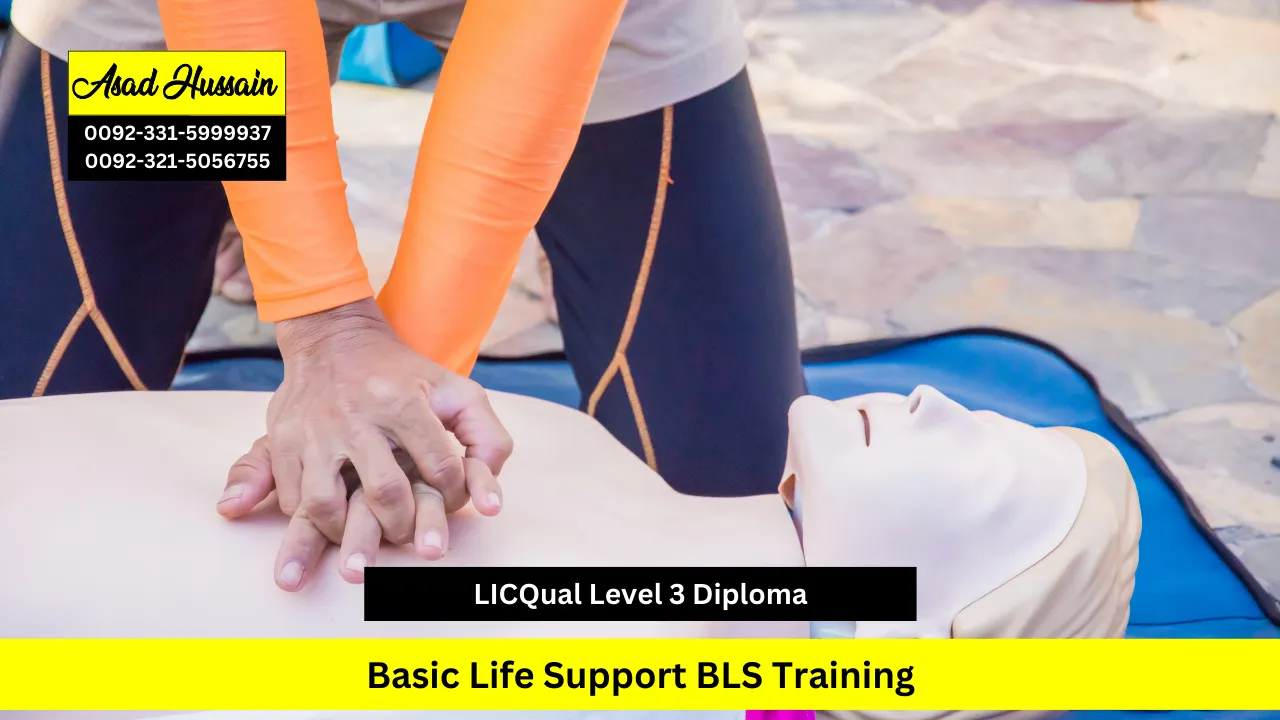Program Highlights
Mandatory Units
- Advanced Cardiac Arrest Management and CPR Techniques
- Use of AED and Advanced Airway Management
- Managing Trauma and Medical Emergencies
- Scene Safety, Risk Assessment, and Immediate Action
- Post-Emergency Recovery and Care
- Ethical and Legal Framework for Emergency Care Providers
The LICQual Level 3 Diploma in Basic Life Support (BLS) Training is open to learners who are passionate about developing critical lifesaving skills and enhancing their career in healthcare and emergency response. To ensure candidates can successfully complete the program, certain entry requirements must be met.
Age Requirements
- Applicants must be at least 18 years old at the time of enrollment.
Educational Requirements
- A minimum of a Level 2 qualification (or equivalent) in any discipline is preferred.
- Candidates with a strong interest in healthcare, emergency services, or safety management are encouraged to apply.
Professional Experience
- No prior healthcare or emergency response experience is required for entry.
- However, professionals working in hospitals, clinics, emergency services, or occupational health and safety roles may find this qualification especially valuable for career progression.
English Language Proficiency
- Learners are expected to have a good command of English, both written and spoken, to engage effectively with course materials and assessments.
- International learners may be asked to provide evidence of English language proficiency equivalent to IELTS 5.5 or higher.
The entry requirements ensure that every learner begins the program with the ability to succeed and gain the maximum benefit from the qualification. Meeting these criteria will help candidates build the confidence, skills, and competence needed to perform effectively in real-life emergency situations.
The LICQual Level 3 Diploma in Basic Life Support (BLS) Training is designed to build critical lifesaving competencies, combining theoretical knowledge with hands-on practice. By the end of LICQual Level 3 Diploma in Basic Life Support BLS Training, learners will be equipped to respond effectively to emergencies, ensure patient safety, and follow international standards of Basic Life Support. The following unit-based learning outcomes outline the key knowledge, skills, and practical applications learners will gain.
Advanced Cardiac Arrest Management and CPR Techniques
- Demonstrate correct application of advanced cardiopulmonary resuscitation (CPR) techniques in adults, children, and infants.
- Apply evidence-based protocols for managing cardiac arrest situations in diverse environments.
- Assess patient conditions rapidly and perform high-quality chest compressions and rescue breathing to international standards.
- Integrate team-based CPR approaches for effective resuscitation in professional healthcare and community settings.
Use of AED and Advanced Airway Management
- Operate an Automated External Defibrillator (AED) safely and accurately during cardiac emergencies.
- Identify airway obstructions and implement appropriate airway clearance techniques.
- Apply advanced airway management tools and procedures to ensure effective oxygenation.
- Evaluate patient response and adapt interventions to maintain vital airway and breathing functions.
Managing Trauma and Medical Emergencies
- Recognize signs and symptoms of common medical emergencies including stroke, asthma, shock, and seizures.
- Apply immediate trauma management techniques such as bleeding control, fracture support, and spinal injury precautions.
- Implement first-response strategies for burns, poisoning, and allergic reactions.
- Prioritize treatment in multi-casualty and high-pressure emergency scenarios.
Scene Safety, Risk Assessment, and Immediate Action
- Conduct thorough risk assessments to ensure responder and patient safety.
- Apply protocols for managing hazardous environments, including fire, chemical, or confined space emergencies.
- Demonstrate immediate action drills to stabilize patients until professional medical help arrives.
- Implement safe communication and coordination practices within emergency teams.
Post-Emergency Recovery and Care
- Provide appropriate post-resuscitation care to stabilize patients after emergency intervention.
- Support patient monitoring and recovery until transfer to advanced medical facilities.
- Offer psychological first aid and reassurance to patients and bystanders after critical events.
- Document and report emergency care actions accurately for follow-up and review.
Ethical and Legal Framework for Emergency Care Providers
- Explain the ethical responsibilities of BLS providers in healthcare and community settings.
- Apply legal standards and professional codes of practice in emergency response.
- Respect patient confidentiality, dignity, and cultural sensitivity during care delivery.
- Evaluate real-world scenarios to apply ethical decision-making in life-threatening situations.
Conclusion
The LICQual Level 3 Diploma in Basic Life Support (BLS) Training ensures that learners gain not only the technical ability to save lives but also the confidence, ethical understanding, and professional judgment required in emergency care. By mastering these outcomes, graduates will be well-prepared to serve as competent first responders in hospitals, workplaces, community health, and high-risk environments.







